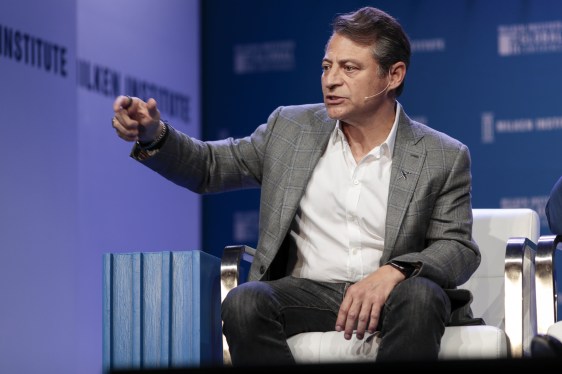Eight years ago, orthopedic surgeon Dr. William Kapp attended a medical conference that changed his professional life. He had transitioned from private practice to co-founding a company that built critical care hospitals, eventually selling it. This experience sparked his interest in both the medical and business sides of healthcare. At the conference hosted by physician-scientist Dr. Daniel Kraft, he learned about emerging technologies aimed at improving outcomes while reducing costs.
Dr. Peter Diamandis, founder of the XPRIZE Foundation, and Dr. Bob Hariri, a stem-cell pioneer, discussed genomics, microbiomics, and other innovations not yet mainstream in medicine. Inspired, Kapp returned to Naples, Florida, and launched the Longevity Performance Center, focusing on early detection and health optimization.
In March 2020, Diamandis and Tony Robbins, who had a stem cell startup called Fountain Therapeutics, visited Kapp’s center. Their discussions led to a merger, and by October that year, the companies became Fountain Life. Kapp remained CEO, with Diamandis and Robbins as co-founders and board members. Today, the board includes Hariri as an adviser, Todd Wanek of Ashley Furniture Industries as an investor, and Indian business mogul B.K. Modi.
Fountain Life recently raised an $18 million Series B, led by EOS Ventures, with participation from existing board members. The company has raised $108 million total, including an $80 million Series A.
Longevity as a medical field was undefined when Kapp started. Over the past few years, research has expanded. Fountain Life’s approach focuses on three principles: preventing avoidable deaths through early detection, optimizing health markers with validated treatments, and using FDA-trialed regenerative therapies.
The company operates four centers in Naples, Orlando, Dallas, and Westchester, New York, with Houston opening soon and Los Angeles and Miami planned for 2026. Members undergo quarterly screenings tracking over 100 biomarkers, with results analyzed by an AI-powered app called Zori.
Membership costs $30,000 annually for full access, or $10,000 for testing and AI tracking without ongoing support. Despite the price, Kapp cites success stories, including detecting early-stage kidney cancer in a member, now cancer-free, and identifying a brain aneurysm in hotelier Sam Nazarian, who was successfully treated.
To improve affordability, Fountain plans to train other medical facilities in its methodologies, aiming to reduce costs as technology becomes more accessible. Competitors like Function Health, founded by Dr. Mark Hyman, offer cheaper blood-test packages but lack full-body scans and direct physician access.
Fountain Life continues expanding, driven by its mission to revolutionize preventive healthcare through advanced diagnostics and personalized treatments.

